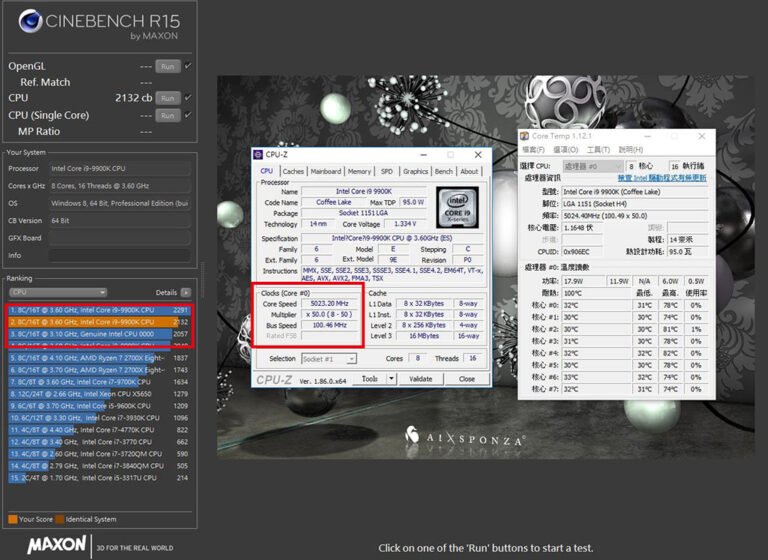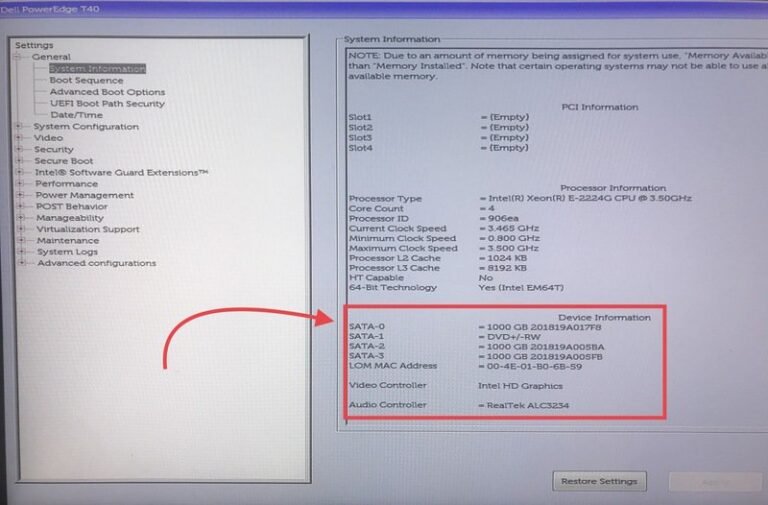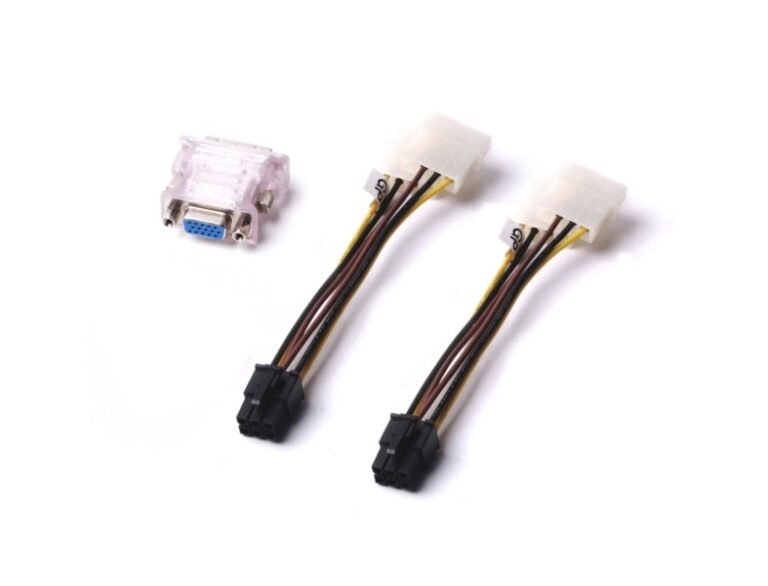How Hot Does a Cpu Get Without a Cooler
A CPU can get quite hot without a cooler, and it is important to keep an eye on the temperature to prevent any damage. The average temperature for a CPU without a cooler is around 80-85 degrees Celsius. However, some CPUs can get as high as 95 degrees Celsius or more.
If your CPU starts to approach these temperatures, it is important to take action to cool it down. There are a few ways to do this, such as using a fan or installing a water cooling system.
Your computer’s CPU is responsible for processing all of the information that your computer needs to function. This puts a lot of strain on the CPU, and can cause it to generate a lot of heat. If your CPU does not have a cooler, this heat will build up and eventually damage your computer.
It is important to keep your CPU cool, especially if you are running demanding applications or games. There are a few different ways to do this, but the most effective way is to use a CPU cooler. A CPU cooler helps to dissipate the heat generated by your CPU, and keeps it from damaging your computer.
There are a variety of different types of CPU coolers available on the market, and you should select one based on the specific needs of your computer. If you are unsure about which type of cooler to get, you can always consult with an expert at your local computer store.
How Long Can a Cpu Run Without a Cooler
If you’ve ever wondered how long a CPU can run without a cooler, the answer is not very long at all. In fact, most CPUs will start to overheat and shut down within seconds or minutes without active cooling.
There are a few factors that contribute to how long a CPU can run without a cooler.
The first is the ambient temperature of the room or environment where the CPU is running. If it’s already hot in the room, the CPU will overheat more quickly. The second factor is the type of CPU.
Some CPUs are designed to run hotter than others and can tolerate higher temperatures for longer periods of time before shutting down.
Generally speaking, though, you should never try to run a CPU without an active cooler for more than a few seconds at a time. Doing so could damage the processor and shorten its lifespan significantly.
So if your computer starts to overheat, be sure to check that all fans and coolers are working properly and clean any dust buildup from around them as soon as possible.
Can You Test a Cpu Without a Cooler
There are a few ways that you can test a CPU without a cooler. One way is to use a software program that will stress test the CPU. This will allow you to see if the CPU is stable at high temperatures.
another way is to simply boot up the computer and check the BIOS for temperature readings. If the CPU is running too hot, it will be automatically throttled back by the BIOS.
Buy Cpu Without Cooler
You can buy a CPU without a cooler, but it is not recommended. CPUs generate a lot of heat and need to be properly cooled in order to function properly. Without a cooler, your CPU will overheat and may be damaged.
Run Computer Without Cpu Cooler
If you’ve ever wondered if it’s possible to run a computer without a CPU cooler, the answer is yes! It is possible to operate a computer without one, but there are some things you need to know first. For starters, your computer will likely run hotter without a CPU cooler.
This means that your components may have shorter lifespans and could overheat more easily. Additionally, your system will be louder without the fan from the CPU cooler.
That said, it is still possible to run a computer without a CPU cooler.
If you’re willing to take those risks, there are ways to do it. One method is to use software that will throttle your CPU when it gets too hot. This way, your system won’t overheat and damage itself.
Another method is to water cool your system instead of using air cooling. This requires more setup and maintenance than using a CPU cooler, but it can keep your system much cooler overall.
Ultimately, whether or not you should run your computer without a CPU cooler is up to you.
If you’re willing to accept the risks involved, then go for it! Otherwise, we recommend sticking with traditional air cooling methods.
Cpu Without Thermal Paste
It’s a scary thought, isn’t it? A CPU without thermal paste. But it can happen, and when it does, it’s not pretty.
The thermal paste is there for a reason – to keep your CPU cool. Without it, your CPU will overheat and eventually fail. So what can you do if your CPU is without thermal paste?
First, don’t panic. It’s not the end of the world. Your CPU will likely still be OK.
But you will need to take some precautions to make sure it doesn’t overheat.
The first thing you’ll want to do is find some way to increase airflow around your CPU. This could mean opening up your case or adding additional fans.
Whatever you do, just make sure there’s plenty of airflow around your CPU.
Next, you’ll want to monitor your CPU temperature closely. If you see it start to get too high, take action immediately.
You may need to shut down your PC or reduce its workload until things cool down again.
If all else fails and your CPU starts to overheat despite taking these precautions, then you’ll need to replace the heat sink and/or fan assembly. This is usually a last resort measure, but if nothing else works then it may be necessary in order to save yourCPU .

Credit: en.wikipedia.org
How Hot Will Cpu Get With No Cooler?
If you’re wondering how hot your CPU will get without a cooler, the answer is: it depends. The temperature of your CPU without a cooler will depend on several factors, including the type of CPU you have, the ambient temperature of your environment, and whether or not you’re using any other cooling methods (such as airflow from a fan). In general, though, CPUs can get quite hot without a cooler – so hot that they can actually start to damage themselves.
If you’re concerned about how hot your CPU might get without a cooler, it’s best to err on the side of caution and use some form of cooling.
Is 200 Degrees Hot for Cpu?
No, 200 degrees is not hot for a CPU. In fact, most CPUs can safely operate at temperatures up to around 200 degrees Fahrenheit. However, if your CPU is running at or near 200 degrees Fahrenheit all the time, there may be an underlying problem causing it to overheat.
If you’re concerned about your CPU’s temperature, check its manufacturer’s website for more information.
Is 120 Degrees Too Hot for Cpu?
The answer to this question is tricky and depends on a few factors. The first factor is what kind of CPU you have. If you have a standard desktop CPU, then 120 degrees is likely too hot.
However, if you have a high-end gaming or workstation CPU, then 120 degrees may be within the normal operating range. The second factor is what kind of cooling system you have. If you have a good air cooling system, then 120 degrees should be fine.
However, if you are using water cooling or some other type of liquid cooling, then 120 degrees may be too hot. Finally, it also depends on how hard your CPU is working. If your CPU is under a lot of load, then it will generate more heat and therefore may overheat at lower temperatures.
Can I Run a Pc Without a Cpu Cooler?
A CPU cooler is not strictly necessary for a PC to function, but it is highly recommended. Without a CPU cooler, your processor will overheat and eventually shut down. A quality CPU cooler can keep your processor running at optimal temperatures, even under heavy load.
Using an AMD CPU without a Cooler — Will the CPU SURVIVE?
Conclusion
Overall, it is clear that a CPU can get very hot without a cooler. However, there are some things that can be done to help prevent this from happening. By using a fan or watercooling system, it is possible to keep the CPU cool and prevent it from overheating.










